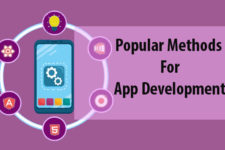The current popularity of healthcare apps is no joke. The number of apps running on both Android and iOS platforms has almost triplicate for the past few years. It can be explained by two factors. The first one is that health and health-related topics are trending today. Many people all over the world want to monitor their health, keep fit and track their sports activities. Another reason that contributed greatly to the healthcare mobile app development is the invention of new treatment options thanks to innovative technologies. Medical mobile apps help doctors in a lot of ways. Dedicated apps allows physicians to check on their patients’ conditions at any time of the day or night and also provide online consultations.
Many entrepreneurs saw mHealth as a lucrative market, so they latched onto the idea of starting their own healthcare apps. The term mHealth, short for mobile health, is used to denote the use of mobile devices along with the wireless technology to provide medical care or health-related services. Although the healthcare market offers various apps starting from the simplest one such as doctor appointment booking apps and ending with the advanced medical software, supported by machine learning and neural networks, the mobile health market still falls into two major categories:
- Medical apps aimed at medical professionals and patients with chronic diseases that require constant monitoring.
- Fitness apps aimed at enthusiastic people who care about their health and lead a healthy lifestyle.
Then there are subcategories that include the following kinds of healthcare apps:
- Apps that collect various metrics of the user such as arterial pressure, pulse, heartbeat, sleep ect).
- Fitness apps that provide individual workout plans depending on the user athletic abilities and control of fulfilment.
- Dieting apps that help to count calories, compose a more healthy menu and offer low-calorie recipes.
- Apps that remind users to take their medication and provide detailed information of the medical prescriptions, dosages, frequency of medication taking.
- Mobile apps aimed at people dealing with chronic diseases such as asthma, diabetics, heart issues.
- Apps that allow patients to interact with a medical center or clinic without in-person visit.
- Apps that belong to femtech development and help to monitor menstrual cycles and fertility.
It’s worth mentioning another rapidly growing sector on the healthcare market: telemedicine. Many people tend to think that the future of the medical industry will belong to this relatively new type of medical care. Telemedicine makes it possible to provide medical treatment to the patients living in the rural communities or patients who have mobility limitations. By conducting video conferences and online consultations doctors can diagnose and treat patients from a distance. Of course in individual cases the doctor will advise a hospitalization.
Telemedicine is also used by medical professionals for educational purposes and experience exchange. For instance, streaming surgeries online allows surgeons from different parts of the world to see the work of their foreign colleagues and learn a thing or too.
Summing it up, today mHealth market offers mobile applications that meet consumers’ every need. The most trending types of app are fitness and weight loss apps. You can join the flow by launching your own healthcare app, but be sure to study the market and competitors first to offer a unique product.




